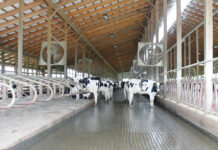ITHACA, N.Y. — The Great Recession of 2007-09 — the longest and most severe U.S. recession since 1933 — has cost an estimated 9.3 million American adults their health insurance coverage due to unemployment, reports a working paper by the National Bureau of Economic Research.
The recession was “the longest and deepest macroeconomic downturn in the United States since 1933,” wrote John Cawley, professor of policy analysis and management and of economics at Cornell University, and colleagues from Indiana and Carnegie Mellon universities.
Statistics
About nine times as many Americans lost health insurance coverage in the recession of 2007-09 as in the recession of 2001, the study reports. Hardest hit were white, college-educated men ages 50 to 64, who were much more likely than women to lose health insurance coverage as the unemployment rate rose.
Of the 9.3 million adults estimated to have lost coverage, 7.1 million were men and 2.2 million were women. An increase in the unemployment rate of 1 percentage point was associated with a 1.67 percent decrease in the likelihood of men being insured.
Increases in the unemployment rate were associated with a decreased probability of health insurance coverage even for men who didn’t lose their jobs. This may be because employers dropped coverage, cut workers’ hours to the point they no longer qualified for health insurance or increased employee premium contributions leading workers to decline the offer of coverage.
The 9.3 million figure represents the difference in the number of adults with insurance coverage in December 2007 (the macroeconomic peak) compared with June 2009 (the macroeconomic trough). The number who lost coverage as a result of the recession is undoubtedly higher due to “churn” in the ranks of the uninsured, the authors report.
Children
The picture is brighter for children. The study estimates that 4.2 million children under age 18 gained health insurance coverage during the recession by becoming eligible for Medicaid and state health insurance programs when their parents lost jobs.
A 1 percentage-point increase in the unemployment rate is associated with a 1.37 percentage-point increase in the likelihood of children being insured.
The Impact of the Macroeconomy on Health Insurance Coverage: Evidence from the Great Recession draws on data from the Census Bureau’s Survey of Income and Program Participation and monthly state unemployment figures to estimate the effect of the state unemployment rate on health insurance coverage for the overall population as well as for specific subgroups.
Previous research
The study builds on previous economic research by the authors on the relationship between the macroeconomy and health insurance status. It also contributes to the economics literature on the longest and most severe U.S. recession since the 1930s.
The paper concludes with a “thought experiment” that examines the impact of the 2010 Patient Protection and Affordable Care Act on the relationship between the unemployment rate and health insurance coverage. The results imply that, because of the Act’s expansion of Medicaid coverage for adults, a higher unemployment rate may not have a significant impact on insurance coverage when the law is in place.









